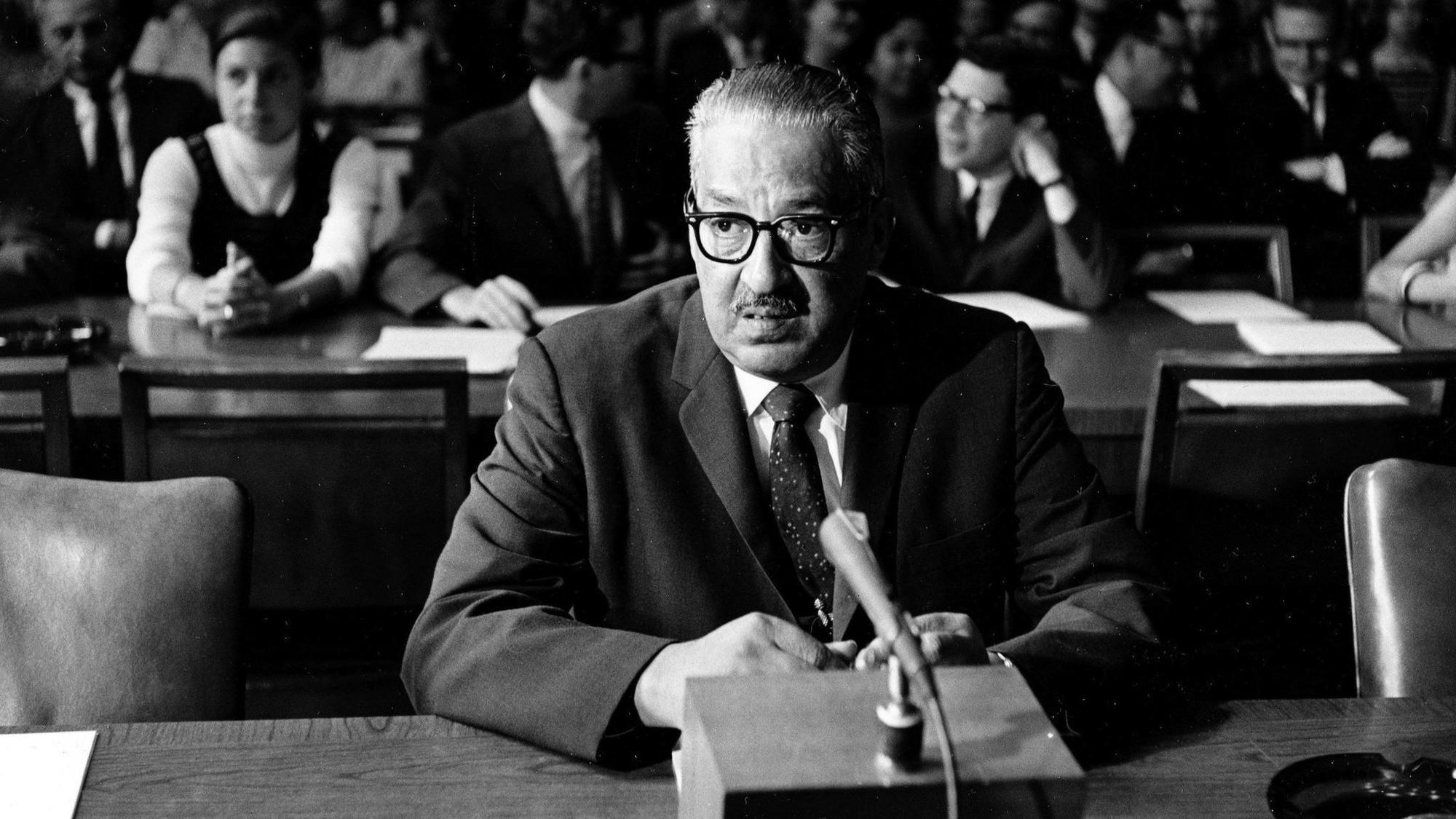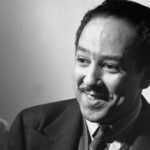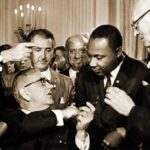Thurgood Marshall: Paving the Path to Justice
Early Life and Family:
Thurgood Marshall, born on July 2, 1908, in Baltimore, Maryland, emerged as a trailblazing figure in American legal history. He was the great-grandson of a slave and grew up in a middle-class African American family. His father, William Marshall, worked as a railroad porter, and his mother, Norma, was a teacher. The family’s commitment to education and justice deeply influenced Marshall’s future endeavors.
Education and Early Struggles:
Marshall faced racial segregation firsthand, attending an overcrowded, underfunded African American school. Despite the challenges, he excelled academically and later attended Lincoln University, a historically black institution. His pursuit of law led him to Howard University Law School, where he was mentored by Charles Hamilton Houston, a prominent civil rights attorney. Marshall faced financial difficulties during his studies, highlighting the systemic obstacles confronting minority students.
Legal Career Beginnings:
Upon graduating in 1933, Thurgood Marshall faced an uphill battle entering the legal profession as a black man. Undeterred, he established a private law practice in Baltimore, focusing on civil rights cases. His commitment to dismantling segregation attracted attention, and in 1936, he joined the legal team at the National Association for the Advancement of Colored People (NAACP).
Landmark Cases and Supreme Court Victories:
Marshall’s brilliance in the courtroom became evident through a series of groundbreaking cases, including Brown v. Board of Education (1954), where he successfully argued against racial segregation in public schools. This landmark Supreme Court decision marked the beginning of the end for legalized segregation in the United States. Marshall’s legal prowess continued with victories in cases such as Smith v. Allwright (1944), challenging the “white primary,” and Murray v. Pearson (1936), which dismantled segregation at the University of Maryland Law School.
Appointment to the Supreme Court:
In 1967, President Lyndon B. Johnson appointed Thurgood Marshall as the first African American Justice of the United States Supreme Court. This historic appointment recognized Marshall’s lifelong dedication to justice and equality. Throughout his tenure (1967-1991), he consistently championed civil liberties and human rights, leaving an indelible mark on the nation’s legal landscape.
Legacy and Contributions to the World:
Thurgood Marshall’s legacy extends beyond his judicial decisions. His contributions to the world include:
1. Legal Advocacy for Civil Rights:
- Marshall’s work with the NAACP laid the foundation for the civil rights movement, inspiring future leaders and advocates.
2. Educational Equality:
- Marshall’s efforts in Brown v. Board of Education catalyzed the push for equal educational opportunities, influencing subsequent legislation and policies.
3. Advocate for Criminal Justice Reform:
- He consistently dissented against the death penalty and advocated for fair treatment within the criminal justice system.
4. Defender of Individual Rights:
- Marshall’s opinions emphasized the protection of individual liberties, making him a staunch defender of the Constitution.
Conclusion:
Thurgood Marshall’s life exemplifies resilience, intelligence, and an unwavering commitment to justice. From humble beginnings to the highest court in the land, Marshall’s journey reshaped the legal landscape and inspired generations to come. His legacy remains a beacon of hope for those who continue to fight for equality and justice.





